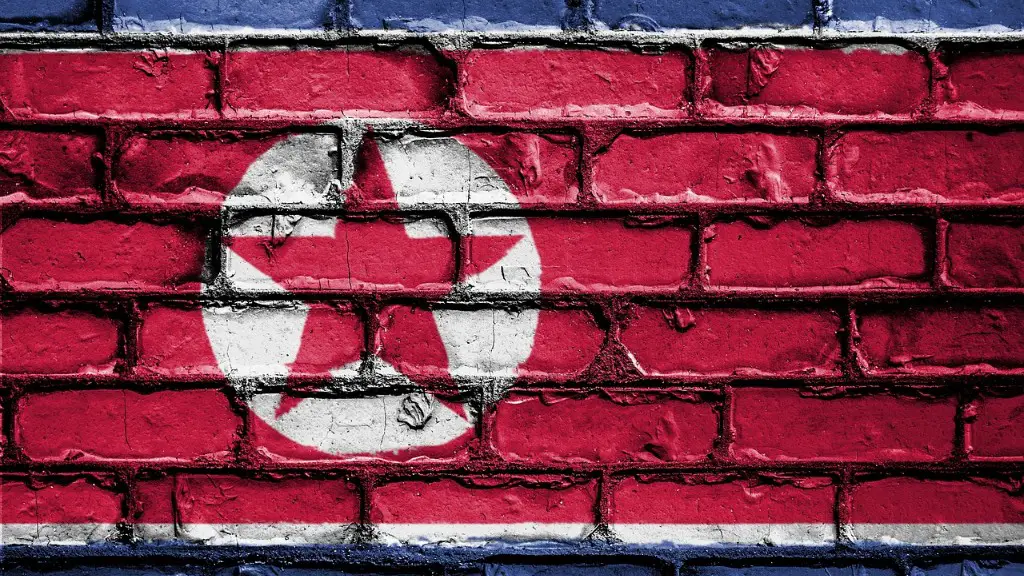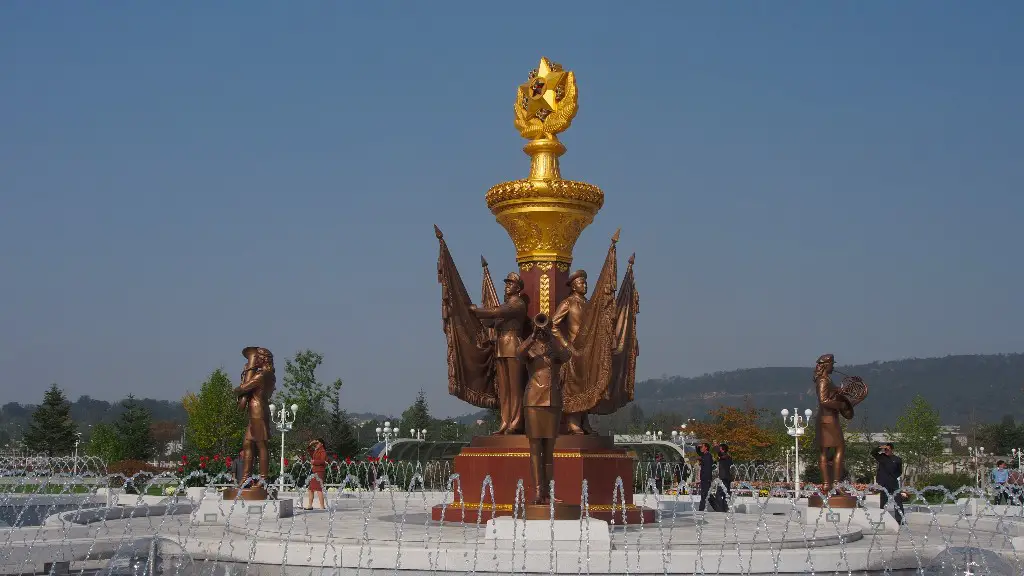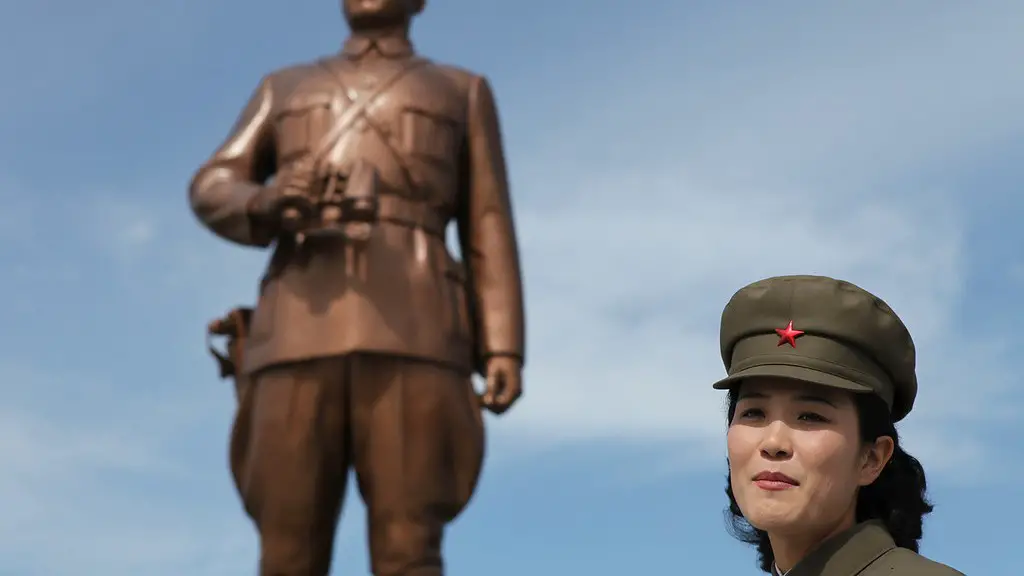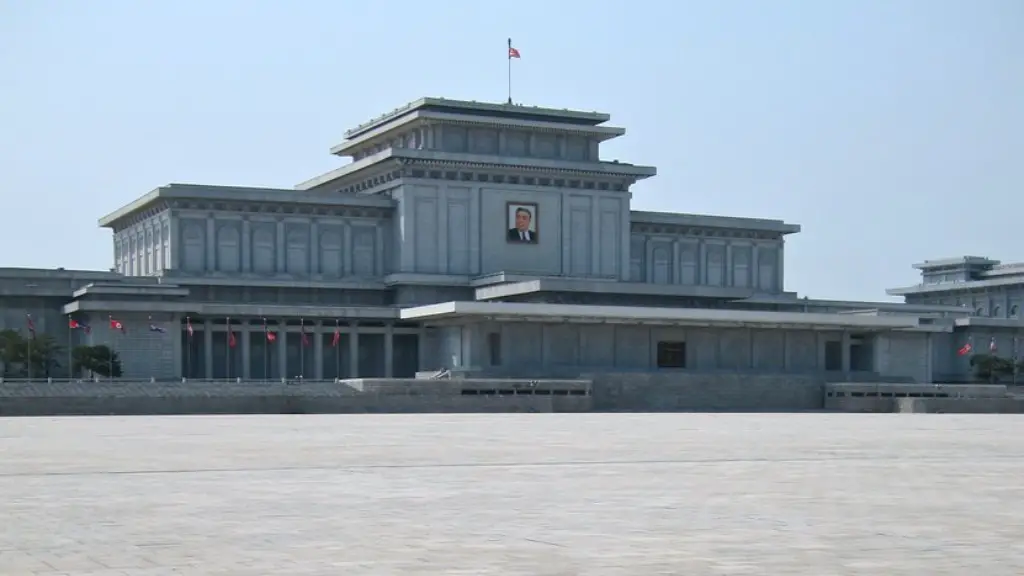Background Information On North Korea
North Korea is the last of the five remaining communist nations and is located in East Asia. It is commonly known for its authoritarian government and its relentless pursuit of nuclear weapons and modern military technology. The country is highly militarised and is ruled with an iron fist by its current leader, Kim Jong Un. The country has been run as a dictatorship since it was formally created after World War II in 1948 as a buffer zone between the Soviet Union and South Korea. It has been managed in this manner ever since, with the ruling party, the Korean Workers’ Party (KWP), controlling all aspects of life.
North Korea has a population of roughly 25 million people, who are poor and living under a system of extreme control. The economy is centrally planned and the government is not only very oppressive but also extremely secretive and isolated from the outside world. People in the country are monitored closely and many basic freedoms, such as freedom of speech, press, and thought, are lacking. Despite its oppressive nature, the government has been able to remain in power through a combination of fear and indoctrination.
Reasons For North Korea’s Continued Dictatorship
One of the main reasons why North Korea has been able to stay a dictatorship for so long is its isolation from the rest of the world. The country is closed off from the rest of the world, making it difficult for foreign countries to influence the situation. This isolation has also allowed the government to spread its ideology more easily, as there is no counter-narrative from outside sources. This propagation of its ideology coupled with the extreme restrictions on basic freedoms have prevented any rebellious activity from occurring.
The country also has a powerful military, which is not only used to maintain its control over the population, but also has been used for external gains. This has enabled North Korea to successfully pursue its foreign policy objectives, such as the pursuit of nuclear weapons and other military technology, with few repercussions. The military also serves to threaten any external forces considering intervening in North Korea, which has been successful in deterring any potential adversaries.
In addition, North Korea’s current leader, Kim Jong Un, is highly charismatic and has been able to successfully consolidate power since assuming office in 2011. Kim has been successful in maintaining his grip on the country through a combination of fear and propaganda. Kim’s power has come largely from his position as the head of a hereditary dynasty, which has been able to rally the support of many North Koreans behind him.
Long-Term Consequences Of The Dictatorship
The continued dictatorship in North Korea has had far-reaching consequences. The country is currently one of the poorest in the world, with the majority of the population living in poverty. The economy has been stagnating for the past several years and is heavily reliant on foreign aid. The country also lacks basic necessities such as food, medicine and electricity. North Korea also faces regular sanctions from foreign countries due to its continued development of nuclear weapons and other military technology, which has further exacerbated its economic woes.
The government’s oppressive tactics have also caused human rights abuses such as arbitrary detention, torture, forced labor and public executions. The country has also been accused of perpetrating crimes against humanity. In addition, the government’s extreme isolation from the rest of the world has lead to its citizens being deprived of information from outside sources and not having access to the same rights and freedoms that other people do.
International Efforts To End The Dictatorship
The international community has long expressed concerns about the situation in North Korea and has made multiple attempts to address it. In recent years, the United Nations has increased its sanctions against North Korea in an effort to pressure the government to end its oppressive policies and make progress towards denuclearization. In addition, the United States and South Korea have continued to engage in peace talks with North Korea, however to limited success. Despite these efforts, North Korea has remained a dictatorship and continues to face pressure and criticism from the international community.
Some experts have argued that the only way to bring an end to North Korea’s dictatorship is to support the North Korean people and help them improve their standard of living. This would involve providing aid, stimulating economic growth, promoting human rights and increasing access to information from outside sources. In addition, the international community should continue to pressure the government to end its oppressive policies and move towards denuclearization.
Criticism Of The Dictatorship
The situation in North Korea has been widely condemned by the international community with many voicing their concern about the oppressive nature of the government and calling for an end to the dictatorship. Human rights organizations have been particularly vocal, with the United Nations repeatedly issuing reports outlining the horrific human rights abuses being perpetrated by the government. In addition, the International Criminal Court has accused North Korean officials of committing war crimes and crimes against humanity and has called for the perpetrators to be held accountable.
Many activists and experts have also expressed concern about North Korea’s pursuit of nuclear weapons and the threat this poses to regional and global security. In addition, the government’s oppressive policies and isolation of its people have been widely frowned upon and criticized. As a result, the international community has called for an end to the North Korean dictatorship and a transition to a more open, democratic society that respects the basic rights of its citizens.
Reasons For Contentment With The Dictatorship
Although the current situation in North Korea is widely criticized, there are some reasons why many people in the country may be content with the dictatorship. Under the current government, the country has achieved some economic success, with the economy currently growing at a rate of around 4%. The government has also maintained a level of peace and order, with most people not experiencing any civil unrest and many living in relative security.
In addition, the government has been able to successfully repress any potential dissent through its oppressive policies. This has prevented any anti-government groups from forming and has enabled the ruling party to maintain its control over the country. North Korea also has a long history of xenophobia, which has contributed to the people’s acceptance of the government and its policies.
Likelihood Of Change In The Short-Term
Despite the international criticism of North Korea’s continued dictatorship, it is highly unlikely that there will be any significant change in the near future. The government has proven to be highly resilient and many of its policies have been effective in maintaining its power. Furthermore, the extreme isolation of the country has prevented any outside forces from intervening and the powerful military has been able to deter outside aggression.
In addition, the country has been able to successfully manipulate international sanctions and has been able to continue its activities with relative impunity. The current leader, Kim Jong Un, also remains a powerful figure and is seen by many as an important part of the government’s success. As a result, it is highly unlikely that there will be any significant changes to the government in the near future.
Possibility For Change In The Long-Term
The possibility of North Korea becoming a more open, democratic society in the future remains an open question. Ultimately, the situation in North Korea is likely to depend on a variety of factors such as the country’s economic growth, its relations with foreign countries, and the opinion of the North Korean people. It is important that the international community continue to pressure the government to end its oppressive policies and move towards denuclearization. Additionally, increased access to information from outside sources may also lead to a shift in public opinion which could put pressure on the government to change.
The government may also be willing to make changes if it feels the situation is becoming increasingly precarious or if there is a risk that it could lose its grip on power. The death of Kim Jong Un could also trigger a change in the country as a new leader takes over and begins to implement their own policies. Ultimately, how the situation in North Korea develops in the future is uncertain, but it is likely that the country will eventually make the transition to a more open society.




